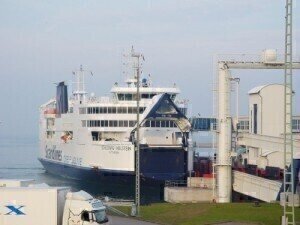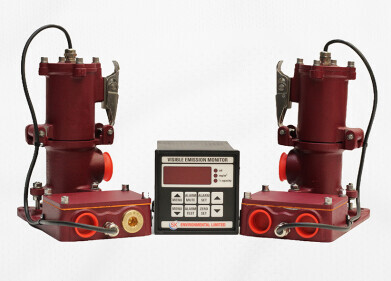Air Monitoring
Sulphur dioxide in EU ports reduced 66 per cent
Aug 23 2012
Sulphur dioxide levels in EU ports have been reduced by 66 per cent, according to new reports, which showed that European policies have had a significant effect on air pollution.
The EU Directive 1999/32/EC looked to cut levels of sulphur dioxide in ports, as research showed shipping was contributing to a significant level of pollution. New rules were initiated in 2010, and have had a notable effect on air quality levels, and have been documented by scientists at the European Commission's Joint Research Centre (JRC).
Researchers collected the results in Mediterranean harbours before and after the entry into force of the low-sulphur requirements in
January 2010. They found a stark reduction in the level of sulphur dioxide, dropping some 66 per cent. This compared to results taken in non-EU ports, which showed levels had remained the same.
Air monitoring equipment was set up on the Concordia class cruise ship Costa Pacifica which followed a fixed weekly route in the western Mediterranean during 2009 and 2010. From the ports investigated, Civitavecchia, Savona and Palma de Mallorca, sulphur dioxide showed the most significant drop.
Sulphur dioxide has been identified as one of the most serious air pollutants, and can cause acid rain as well as generating fine dust. This can significantly impact health, causing respiratory and cardiovascular diseases and reducing life expectancy in the EU by up to two years.
The study also showed a correlation between sulphur dioxide and chemical elements typically emitted from ship stacks, which confirms that the ships are indeed the biggest polluter in the harbours.
Policy makers said that the primary aim of the EU Directive was to establish limits on the maximum sulphur content of gas oils, heavy fuel oil in land-based applications as well as marine fuels. It therefore incorporated the sulphur provisions of the MARPOL Annex VI. This is the International Convention for the Prevention of Pollution from Ships, and is the primary convention that covers air pollution from shipping.
Posted by Claire Manning
Digital Edition
IET 34.2 March 2024
April 2024
Gas Detection - Biogas batch fermentation system for laboratory use with automatic gas analysis in real time Water/Wastewater - Upcycling sensors for sustainable nature management - Prist...
View all digital editions
Events
May 06 2024 Minneapolis, MN, USA
May 13 2024 Munich, Germany
May 15 2024 Lund, Sweden
May 15 2024 Frankurt-am-Main, Germany
May 20 2024 Columbus, OH, USA


















